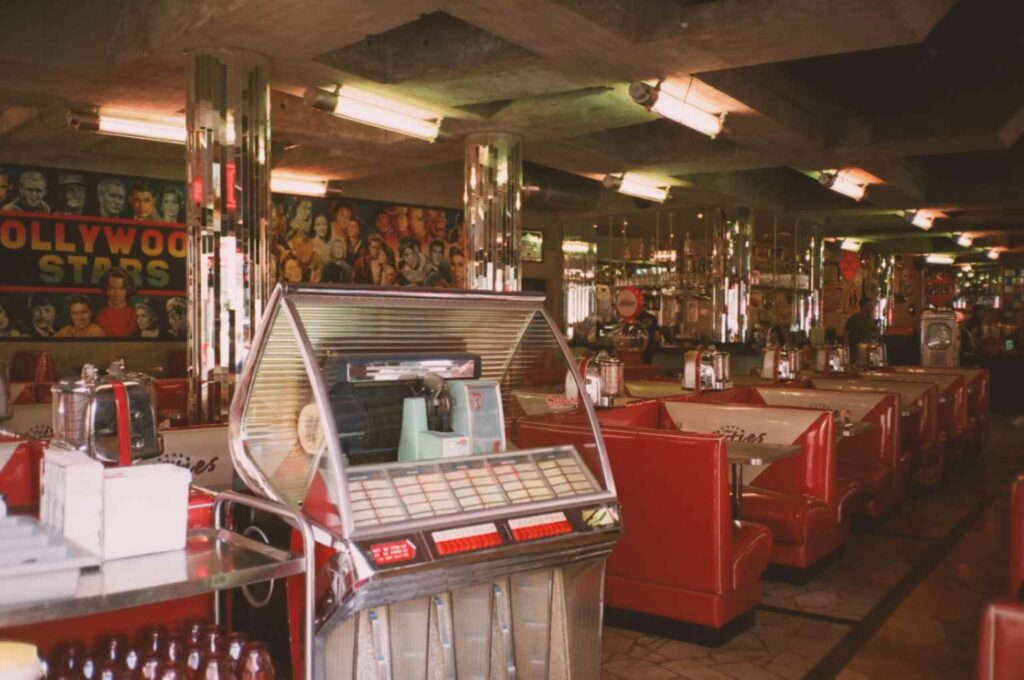Restaurants don’t just sell food, they sell experiences. Just as much thought should go into the desired ambience of the location as the food itself. Do you want something atmospheric? Something trendy? Something that says “quick and easy?” Whatever the case, music should be on the forefront of your mind as you plan your restaurant’s brand. Not only will it set the mood but it can influence your customers’ behaviors and even affect the way they perceive the taste of their food.
With all this information, it’s obvious that the music you play in your restaurant is an important decision. To make the process easier, here are some considerations to keep in mind while making your music choices.
Volume:
Studies have shown that the volume of music in restaurants can impact the decisions that people make. Louder music stimulates while softer music is calming and soothing for the buyer. Thus a louder environment increases a customer’s heart rate and stress, which leads them to crave greasier, fattier foods. Understanding this cause and effect is important for restaurant owners. If you have a diner that has a primary focus of selling hamburgers and fried foods, then louder music will increase your customers’ cravings for your product and potentially encourage them to buy bigger or more servings from your menu. The opposite is also true; if you have a café that primarily sells wraps or salads, playing calming music will soothe your customers and make your food appear even more appetizing and satisfying.
Tempo:
Similar to volume, music tempo also has measurable effects on diners. Faster music stimulates customers, encouraging them to eat faster, while slower music calms customers and encourages them to eat slower. Either effect can be beneficial under different circumstances.
For example, fast-food restaurants are all about the speed of their service. As a result, upbeat music is best. It encourages customers to order faster and eat faster, meaning they spend less time in the restaurant, making it easier to serve more customers. On the opposite end, in fancier restaurants, you usually want diners to buy appetizers, main dishes, desserts, and more drinks. Under this circumstance, slower music works better. It relaxes diners, encouraging them to spend more time in your establishment, and the more time they spend there, the more likely they are to spend more money.
Another consideration with speed is to match the speed with peak and off-peak hours. During slow hours of the day, you might play slow music to encourage customers to spend more time at your establishment. During busy hours, you might play fast music to encourage customers to get in and out, allowing you to accommodate more people.
Genre:
The genre of music you play is important to your restaurant’s brand. For example, if you sell food that is based on different nationalities or regions, generally, it’s best to play music from that country or region. Or perhaps you want to play loud, upbeat rock in your in-and-out diner or play slow, soothing jazz in your organic, local-grown café to impact your diners’ decisions. Whatever the case, choosing and sticking to a genre can help cement customers’ perceptions of your brand, and with more than 500 stations across all genres, SoundMachine makes choosing a genre easy. It’s a simple process in using SoundMachine to select and create stations based on the genre that matches the food you sell.
Variety:
Variety of music is important. You obviously don’t want your diners to notice you’re repeating the same songs, but have you considered your employees? If your employees listen to the same music over and over again, it can become irritating. This irritation can lead to lowered morale and decrease the performance of your employees, which in turn can impact your customers’ experiences. Luckily, with SoundMachine’s playlists and stations, you can easily ensure you have a large body of music without any repeats.
Scheduling:
As mentioned before, different times of day can benefit from different types of music. SoundMachine understands this, and as such, offers an easy-to-use scheduling feature. You can schedule different stations or playlists for peak and off-peak hours, seasonal changes, special events, and more.
Restaurants service all five senses. Taste and smell of the food, sight of the store’s environment and design, feel of the seats or the food in your hands, and the sounds of business and ambient music. With so much to consider, allow SoundMachine to make music decisions easier for you. Sign up for a free trial here.



